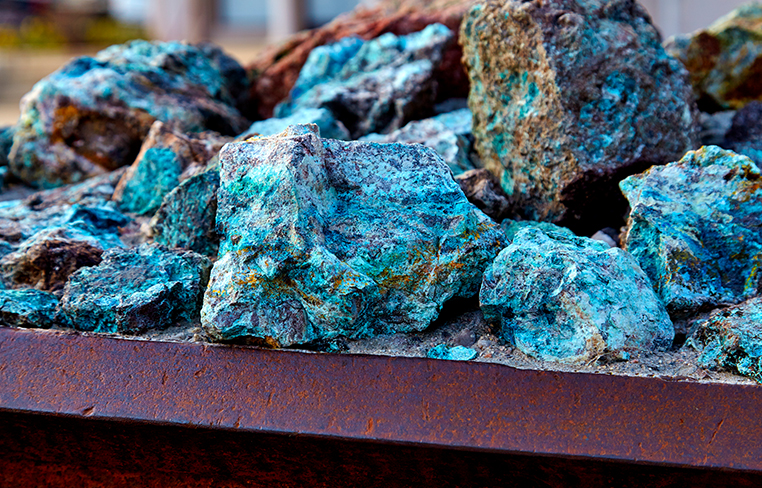Accreditation
Accreditation is a means of determining the technical competence of laboratories to perform specific types of testing.
CALA Accreditation
Accreditation provides formal recognition that laboratories are competent, impartial and independent, therefore providing a ready means for customers to identify and select reliable testing and measurement services that are able to meet their needs. To maintain this recognition, laboratories are re-assessed once every two years to ensure their continued conformance with requirements, and to check that their standard of operation is being maintained. The laboratory is also required to participate in relevant proficiency testing programs between reassessments, as a further demonstration of technical competence.
CALA can provide comprehensive accreditation for testing laboratories including:
- private or government laboratories;
- one-person operations or large multi-disciplinary organisations;
- remote field operations and temporary laboratories.
CALA delivers laboratory accreditation in various fields

Environmental
CALA’s legacy program is the environmental laboratory accreditation program, which was initiated in 1993. Accreditation under this program provides assurance that laboratories are competent to carry out environmental testing that is performed to support environmental monitoring programs and regulations.
For an environmental laboratory to attain accreditation, it must meet both the management and technical requirements of ISO/IEC 17025. Specific application of requirements in ISO/IEC 17025 as they relate to the area of environmental testing is detailed in P07 – CALA Application of Requirements in ISO/IEC 17025.
Ontario MOE/CALA Accreditation Agreement
The Ontario Safe Drinking Water Act (OSDWA), 2002, and related regulations provide requirements for drinking water testing in the Province of Ontario. One of the requirements under the Act is that laboratories testing Ontario drinking water samples must be licensed, and one of the conditions of licensing is accreditation. Section 66(1) of the Act allows the Minister to enter into an accreditation agreement for this purpose. To this end, the Agreement for the Accreditation of Drinking-Water Testing Laboratories between the Ontario Ministry of the Environment and CALA came into effect on August 01, 2008. Those pursuing a license may apply for accreditation by CALA using one of the applicable “P04 – CALA Application Form” Series documents found in the Accreditation Program Requirements in the CALA Library.

Food
Competence of food testing laboratories is of paramount importance to the health and safety of the Canadian public. CALA offers accreditation to laboratories that perform testing that falls under the Canadian Food Inspection Agency (CFIA). The CFIA is an agency under the Canadian Ministry of Agriculture and Agri-Food. The agency is dedicated to safeguarding food, animals, and plants, which enhances the health and well-being of Canada’s people, environment and economy. The CFIA is responsible for the administration and enforcement of numerous Acts (www.inspection.gc.ca)
Many laboratories in Canada conduct testing for legislation that is enforced by the CFIA. Accreditation of testing in these laboratories is governed by the Agreement Between the CFIA and CALA for the Accreditation of Testing Laboratories, which came into effect in March 2012. Under this agreement, the CFIA recognizes CALA as an Accreditation Body for Accreditation of Laboratories conducting analyses and tests in all technical fields related to food, feed and fertilizer as per the appropriate Legislation enforced by the CFIA. The responsibilities of each organization are detailed in the Agreement.
Laboratories applying for accreditation of this field of accreditation generally follow the same procedure for assessment and accreditation, with the following notable differences:
- The CFIA may specify Proficiency Testing (PT) requirements;
- Assessors either work for or are approved by the CFIA; and,
- There are some applications of ISO/IEC 17025 that are specific to this field of testing.

Mineral
CALA offers accreditation to laboratories that perform mineral analysis testing. Mining companies make decisions about exploration using data generated by mineral analysis testing laboratories, and accreditation provides assurance of the competence of a laboratory to perform this testing. Laboratories must meet the management and technical requirements specified in ISO/IEC 17025. Specific application of some requirements in the standard that apply to mineral analysis is detailed in P07 – CALA Application of Requirements in ISO/IEC 17025:2005.

Petroleum
CALA offers accreditation to laboratories that perform petroleum testing. Accreditation of petroleum testing laboratories provides an assurance that laboratories are competent to manage and perform this testing activity, and that reliable data is generated to support and improve the oil and gas industry. Laboratories must meet the management and technical requirements specified in ISO/IEC 17025. Specific application of some requirements in the standard that apply to petroleum analysis are detailed in the following guidance document and checklist: LINK.

Cannabis
A relatively new industry growing quickly; of paramount importance is the focus on consumer safety in the recreational market. CALA is an advocate of accreditation for laboratories undertaking the testing of cannabis for potency and pesticides. Accreditation ensures that the testing methods and resulting data on which decisions are made, are both reliable and trust-worthy.

Occupational Hygiene
Did you know that CALA accredits laboratory testing that is used to support occupational hygiene activities? As with all our fields of testing, laboratories must meet all the CALA accreditation requirements and assessors with the appropriate expertise assess the testing methods. The result is that data generated by these laboratories can be used with confidence to make decisions regarding the protection and promotion of workers’ health and their environment.


Become a Member
CALA membership is open to individuals, user groups, institutions, consultants, industrial organizations, regulatory agencies, laboratory equipment suppliers, and others interested in the work being carried out in environmental analytical laboratories.